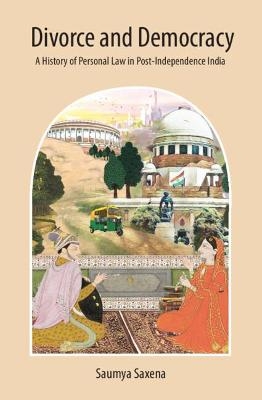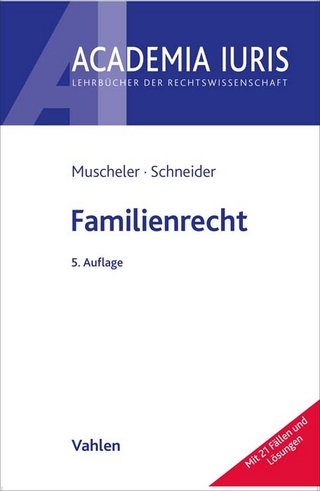
Divorce and Democracy
A History of Personal Law in Post-Independence India
Seiten
2022
Cambridge University Press (Verlag)
978-1-108-49834-0 (ISBN)
Cambridge University Press (Verlag)
978-1-108-49834-0 (ISBN)
It captures the Indian state's difficult dialogue with divorce, mediated largely through religion. By mapping the trajectories of marriage and divorce laws of Hindu, Muslim, and Christian communities in post-colonial India, it explores the dynamic interplay between law, religion, family, minority rights, and gender in Indian politics.
This book captures the Indian state's difficult dialogue with divorce, mediated largely through religion. By mapping the trajectories of marriage and divorce laws of Hindu, Muslim, and Christian communities in post-colonial India, it explores the dynamic interplay between law, religion, family, minority rights and gender in Indian politics. It demonstrates that the binary frameworks of the private-public divide, individuals versus group rights, and universal rights versus legal pluralism collapse before the peculiarities of religious personal law. Historicizing the legislative and judicial response to decades of public debates and activism on the question of personal law, it suggests that the sustained negotiations over family life within and across the legal landscape provoked a unique and deeply contextual evolution of both, secularism and religion in India's constitutional order. Personal law, therefore, played a key role in defining the place of religion and determining the content of secularism in India's democracy.
This book captures the Indian state's difficult dialogue with divorce, mediated largely through religion. By mapping the trajectories of marriage and divorce laws of Hindu, Muslim, and Christian communities in post-colonial India, it explores the dynamic interplay between law, religion, family, minority rights and gender in Indian politics. It demonstrates that the binary frameworks of the private-public divide, individuals versus group rights, and universal rights versus legal pluralism collapse before the peculiarities of religious personal law. Historicizing the legislative and judicial response to decades of public debates and activism on the question of personal law, it suggests that the sustained negotiations over family life within and across the legal landscape provoked a unique and deeply contextual evolution of both, secularism and religion in India's constitutional order. Personal law, therefore, played a key role in defining the place of religion and determining the content of secularism in India's democracy.
Saumya Saxena is British Academy Postdoctoral Fellow, Faculty of History at the University of Cambridge.
Acknowledgements; List of abbreviations; Glossary; Introduction: law as a dialogue; 1. Personal law and the making of modern religion 1946–1956; 2. Committees, codes and customs: renegotiating personal law 1957–1969; 3. Social movements, national emergency, and the custody of the Constitution 1967–1979; 4. Muslim law, Hindu nationalism: secularism of community and gender 1980–1992; 5. The court in context 1992-2000s; 6. From the court room to the courtyard: the public life of personal law 2000–present; Conclusion; Bibliography.
| Erscheinungsdatum | 17.08.2022 |
|---|---|
| Zusatzinfo | Worked examples or Exercises |
| Verlagsort | Cambridge |
| Sprache | englisch |
| Maße | 160 x 236 mm |
| Gewicht | 640 g |
| Themenwelt | Geisteswissenschaften ► Religion / Theologie |
| Recht / Steuern ► Allgemeines / Lexika | |
| Recht / Steuern ► EU / Internationales Recht | |
| Recht / Steuern ► Privatrecht / Bürgerliches Recht ► Familienrecht | |
| Sozialwissenschaften ► Soziologie ► Mikrosoziologie | |
| ISBN-10 | 1-108-49834-5 / 1108498345 |
| ISBN-13 | 978-1-108-49834-0 / 9781108498340 |
| Zustand | Neuware |
| Haben Sie eine Frage zum Produkt? |
Mehr entdecken
aus dem Bereich
aus dem Bereich
Ehe, Scheidung, Unterhalt, Versorgungsausgleich, Internationales …
Buch | Softcover (2024)
dtv Verlagsgesellschaft
CHF 26,45


